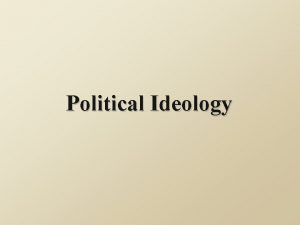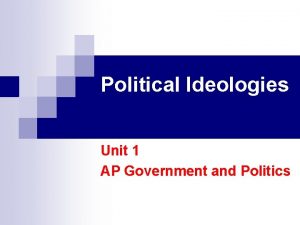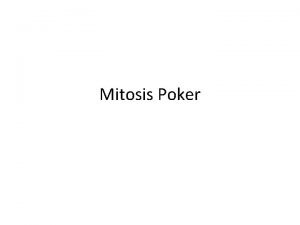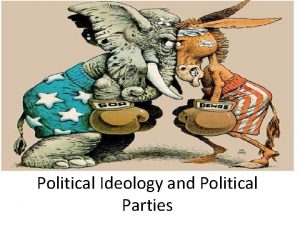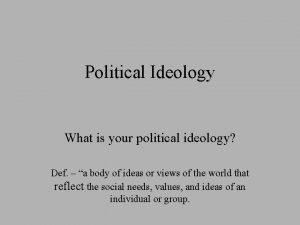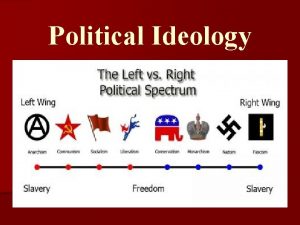Does Political Ideology Play a Role in Government













- Slides: 13

Does Political Ideology Play a Role in Government Contracting? Results from a discrete choice experiment among local politicians EGPA Belfast 2019 Amandine Lerusse Steven Van de Walle Public Governance Institute, KU Leuven amandine. lerusse@kuleuven. be

Introduction • Increasing importance given to non-price criteria in contractingout e. g. low carbon vehicles, improving the employment of vulnerable groups, ICT component, … ”ideological attitudes also have a part to play” in contracting out. • Goal to examine the influence of political ideology, operationalized by party affiliation, on politicians’ stated preferences when awarding contracts to external service providers. 2 Public Governance Institute

Hypotheses (I): price criterion • H 1: Compared to left-wing politicians, right-wing politicians are more likely to take the price criterion into consideration when awarding contracts. 3 Public Governance Institute

Hypotheses (II): non-price criteria • H 2: Right-wing politicians are less likely than left-wing politicians to take environmental criteria into consideration when awarding contracts. • H 3: Right-wing politicians are less likely than left-wing politicians to take innovation-related criteria into consideration when awarding contracts. • H 4: Right-wing politicians are less likely than left-wing politicians to take social criteria into consideration when awarding contracts. 4 Public Governance Institute

Data and Method (I) Figure 1 – Example of a choice set • Discrete choice experiment • Focus on bulky waste items collection at the municipal level in Belgium 5 Public Governance Institute

Data and Method (II) • Fractional factorial design • Data collection: environmental aldermen and mayors response rate: 31. 7 percent • Party affiliation: left-wing and right-wing political parties Chapel Hill expert survey 6 Public Governance Institute

Results (I): H 1 & H 2 Table 1 – Local politicians’ stated preferences H 1: Cannot be confirmed. H 2: Partially confirmed. 7 Public Governance Institute

Results (II): H 3 & H 4 Table 1 – Local politicians’ stated preferences (continued) H 3: Cannot be confirmed. H 4: Confirmed. 8 Public Governance Institute

Additional analysis: MWTP Figure 2 – MWTP and confidence intervals 9 Public Governance Institute

Conclusion • Influence of political ideology on politicians’ stated preferences when awarding contracts to external service providers • Discrete choice experiment: promising method • Limitations: do not capture the heterogeneity of political ideas one public service and one public service provider criteria operationalization 10 Public Governance Institute

Thank You Questions? amandine. lerusse@kuleuven. be The project leading to this paper has received funding from the European Union’s Horizon 2020 research and innovation program under grant agreement No 726840, project TROPICO.

Additional material (I) Figure 1. Position of the Belgian parties on the left-right ideological scale (Chapel Hill scale) 12 Public Governance Institute

Additional material (II) Table 1. Politicians’ stated preferences – Conditional logistic regression 13 Public Governance Institute
 Ap gov unit 4 political ideologies and beliefs
Ap gov unit 4 political ideologies and beliefs Whats political ideology
Whats political ideology Political ideology
Political ideology Political ideology definition
Political ideology definition Political spectrum diagram
Political spectrum diagram Political ideology
Political ideology Define culture
Define culture What role does dan cody play in gatsby’s dream/life
What role does dan cody play in gatsby’s dream/life Setting of great gatsby
Setting of great gatsby The cask of amontillado questions
The cask of amontillado questions What role does nature play in our lives
What role does nature play in our lives Stem cell multiple choice questions
Stem cell multiple choice questions What role does the ribosome play in assembling proteins?
What role does the ribosome play in assembling proteins? What role does dna polymerase play in copying dna?
What role does dna polymerase play in copying dna?



